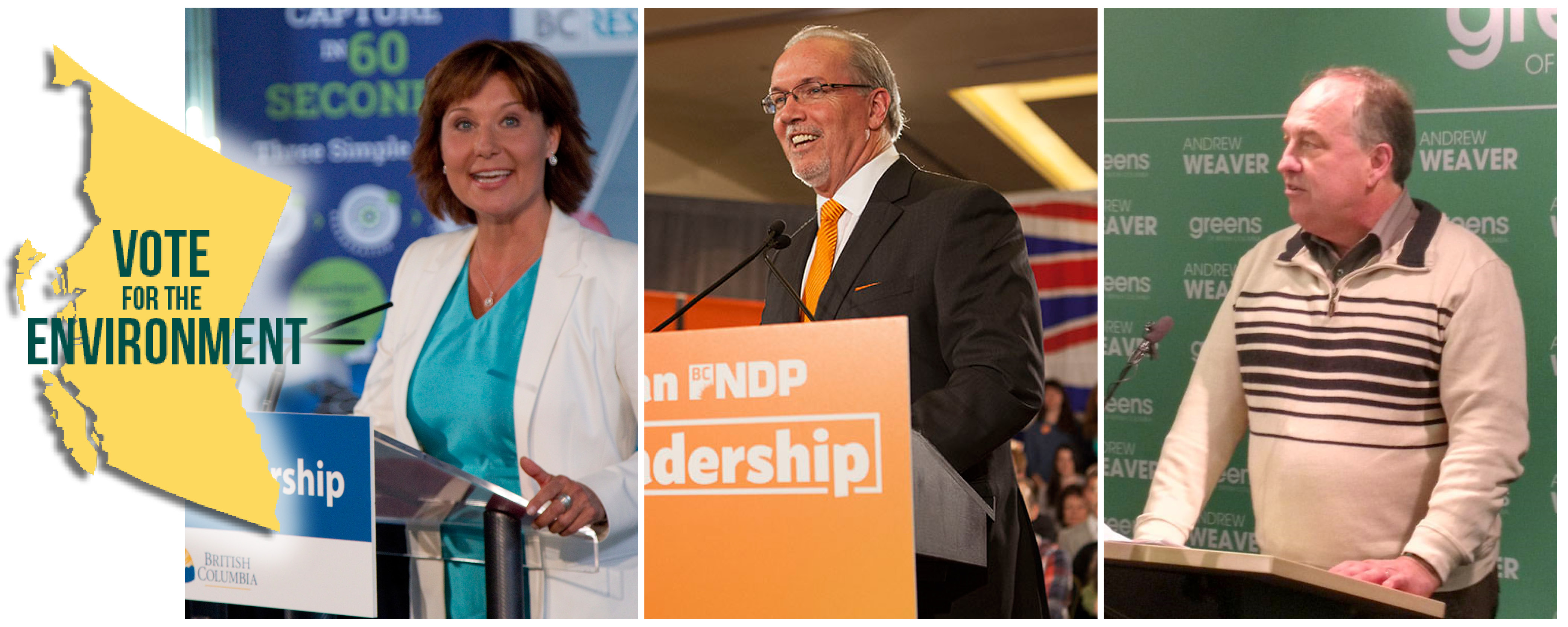
In an earlier post we compared the BC Liberal and BC NDP Climate plans in advance of the upcoming election. At the time the BC Green Party had not released its climate plan.
This plan was recently released, to praise from the Pembina Institute and the David Suzuki Foundation.
Based on our review, we give it a letter grade of B+ (alongside the NDP’s B and the Liberals’ F). For both the NDP and Green plans, a lack of key details – which would be developed should the party form government – was what prevented them from achieving a higher mark.
The Green climate platform differs significantly from the other two parties in that:
- Its centrepiece is a commitment to follow the recommendations of the government’s Climate Leadership Team to increase BC’s carbon tax by $10/year starting in 2018, with the tax rising to $70/tonne by 2021. This was a key recommendation of the Leadership Team that the other parties have shied away from for political reasons.
- The plan is solely focused on climate leadership, and does not attempt to also be a job creation plan (a major feature of both the Liberal and NDP plans).
Nonetheless, much of the Green platform gives “examples” of the types of initiatives that a green government might undertake to reduce greenhouse gas emissions, rather than concrete commitments. While understandable and realistic for an opposition party, this makes it difficult to judge whether the plan will achieve its targets and prevented us from giving the platform full marks.
We have also reviewed the recently-released BC Liberal Platform for promises related to climate change. While the specific commitments are not too different from what we saw in BC’s Climate Leadership Plan, we’ve added some comments and observations to our full evaluation.
Click here for the full scorecard evaluating the climate plans of all three parties.
By Andrew Gage, Staff Counsel, West Coast Environmental Law Association
[Update – 5 May 2017 – We feel obliged to acknowledge that the BC Liberals have introduced a new climate promise, not reflected in the above analysis - pledging to introduce a significant $70/tonne carbon levy on exports of thermal coal from BC ports. We have some skepticism about this promise, given that it originated as a political response to the softwood lumber dispute and given the government’s previous silence on the issue.
However, with the government now promising to proceed with the levy regardless of the outcome of the softwood lumber dispute, we have the following comments on our scorecard. West Coast Environmental Law is a member of Organizing for Change which has advocated for some time for a carbon levy on thermal coal exports (at $30/tonne), and we are therefore gratified to see the issue raised so prominently in the election campaign and to see the Premier’s commitment. Because the levy would affect coal intended for export, it only minimally impact greenhouse gas emissions occurring in BC, and so this action would not help achieve BC’s climate action targets (which relate to emissions in BC only) and clearly more action is required to achieve those targets. The levy could, however, have a significant impact on global emissions, which ultimately are important, as well as discouraging the expansion of fossil fuel infrastructure (coal ports) here in BC.
Accordingly, if implemented, the carbon levy is a significant climate initiative, but one which does not fit neatly within the current categories in our Scorecard. We are not going to re-do our Climate Scorecard at this point, but did wish to note this promise and that it might well, if incorporated, improve the BC Liberal grade in the scorecard.]